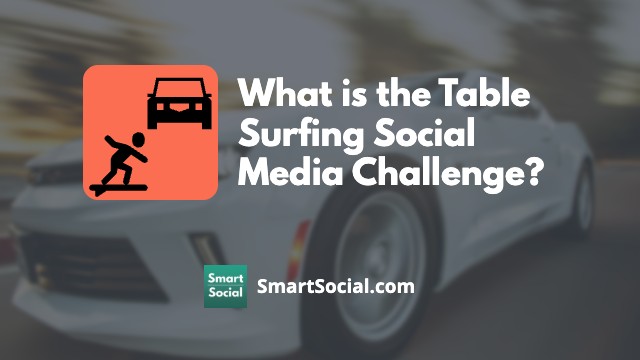What Are Social Media Jet Lag and Cyberloafing
Green Zone App
(Click here to learn more)
Dangerous Social media challenge
(Click here to learn more)
Red Zone App
(Click here to learn more)
Gray Zone App
(Click here to learn more)
Does anyone in your family use bedtime as screen time? Our bodies have a circadian rhythm that tells us when we need to sleep. Social media use, like scrolling in bed late at night, can change our internal clocks causing social media jet lag.
When travelers go across time zones quickly, they often feel fatigued, have problems adjusting to sleeping in a new time zone, and might have difficulty concentrating for a day or two after traveling. We know this experience as “jet lag” where our body’s time clock and our internal rhythms are off.
Research has shown that the way a person uses social media throughout the day, especially early in the morning and late at night, can cause disruption to our internal rhythms much like traveling.
What is Social Media Jet Lag?
A team of researchers at Cornell University, funded by the National Science Foundation, studied the specific habits of social media use, sleep patterns, and a person’s general well-being day-to-day.
They found the study participants had similar effects of jet lag when they had more minutes of social media, or when their screen time went late into the night.
Effects were:
- Fatigue
- Not able to sleep
- Confusion with daily tasks
One key take away from the study:
The later the technology use, the fewer subsequent hours of sleep obtained... Social (media) jet lag: how usage of social technology can modulate and reflect circadian rhythms
Scientists are continuing to work to understand why and how our body's natural rhythms are impacted by social media, but the evidence is clear that social media jet lag affects our physical and mental health.

The effects of social jet lag spill over to many other aspects of health and wellbeing: Toiling through this weekly flux has been tied to heavier drinking and smoking, as well as obesity, depression, and even decreased academic performance. NOVA
How do we cope with social media jet lag?
- Technology and heavy social media use can be the root cause of social media jet lag
- Like an addiction to sugar or junk food, students don’t understand or recognize addictive behaviors
- We know social media apps are created with the goal of keeping us engaged in the app and scrolling
- We can fall into habits of cyberloafing
What is Cyberloafing?
Cyberloafing is a term used to describe the habit of using social media without a specific intention, often to procrastinate throughout the day. While some argue that a limited amount of cyberloafing can help students and employees rebound from stressful or difficult situations, it is very hard to recognize when scrolling social media goes past a relaxing period and into the zone of procrastinating responsibilities.

The key question is when a short break to reset after a tough task turns into procrastination… There’s a fine line between cyberloafing to refresh the mind and when people are doing it as an escape from the task because they find the task challenging… BBC
Why should parents care

Risks include the potential for youth to be exposed to harmful messages online, and for them to become more socially isolated from their peers due to more individualized content viewing. CNN health
The amount of time students spend on social media, including watching YouTube videos, continues to increase.
What parents can do about social media jet lag and cyberloafing
Encourage everyone in your family (students and parents) to do their own self-reflection to see how social media jet lag impacts their day-to-day lives

1: Start a daily social media diary
- Use your phone’s screen time features to help you track it realistically. Every minute of “just checking” should count in your tracking
- Define what counts as social media for your family. What apps on your phone count, does accessing the sites on a computer count, does texting with friends count?
2: Keep note of the time and number of hours you slept
- Was it good, restful, sleep?
- Did it take a long time to feel like you were fully awake and ready to go in the morning?
3: Talk to each other about your general mood and feelings each day
- Are you feeling positive about hard tasks or does everything seem like a challenge?
- Are you irritable or generally friendly to everyone?
4: Look at your diary and ask yourself if you might have social media jet lag
5: Work as a family to build boundaries for the time to use social media. Talk about the right amount of time that is beneficial for social connections, but not detrimental to your sleep.
- Hold each other accountable. Consider putting all electronic devices in a common area of the home in the evening before bed and at night
How can students self-regulate?
- Helping students understand social media addiction and the physical side effects can be eye-opening
- A hands-on reflection can help them understand how they feel for themselves
- A family reflection and conversation can hold everyone accountable to understand social media jet lag and reduce the effects on the whole family
In conclusion, the cycle of social media jet lag effects and cyberloafing can make students (and adults) feel fatigued, make it harder to fall asleep when it is bedtime, and users can feel confused in daily tasks. By reflecting on social media use and reflecting on screen time, students and adults can lessen the impact on their bodies.
Protect your family and enter for a chance to win cool prizes
Become a member or log in to learn more on this topic
Protect your family and enter for a chance to win cool prizes

., start learning from this page to earn points!*
Hello, I'm Josh, the founder of SmartSocial.com.
Don't leave this page until you fill out our feedback form that will appear after you learn from the resources...
Here are some of the latest resources at SmartSocial.com
Become a Very Informed Parent (VIP) to get our social media suggestions in your email every Tuesday & Thursday.



Hello, I'm Josh, the founder of SmartSocial.com. Protect your family by taking my 1 minute quiz
This quiz will help you understand how safe your family is


Schools & Districts: Partner with us to protect your community online
Our remote presentations (and website) teach over a million parents and students each year how to be safe so they can shine online. We teach students how their accounts can be used to create a portfolio of positive accomplishments that impress colleges and employers.


Join Our Smart Social Podcast
each week on iTunes
With over 500 episodes, Josh Ochs interviews psychologists, therapists, counselors, teachers, and parents while showing you how to navigate social media to someday shine online.
Listen on:



.jpg)
.jpg)

.jpg)


